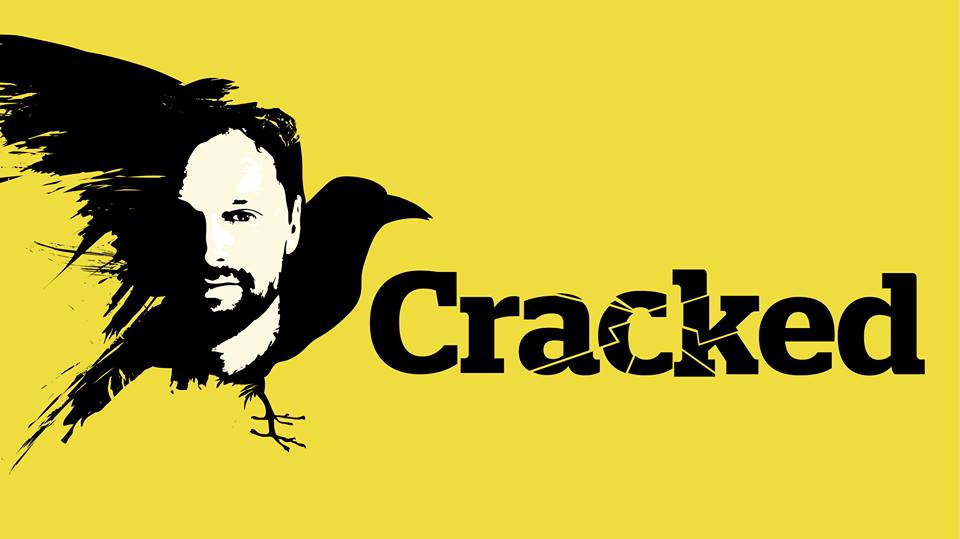
Cracked by Emily Hinshelwood
Pontardawe Arts Centre, 15 Feb 19
Review by Judi Hughes
Excellent writing from Emily Hinshelwood, who loves words and is brave enough to share hers with us
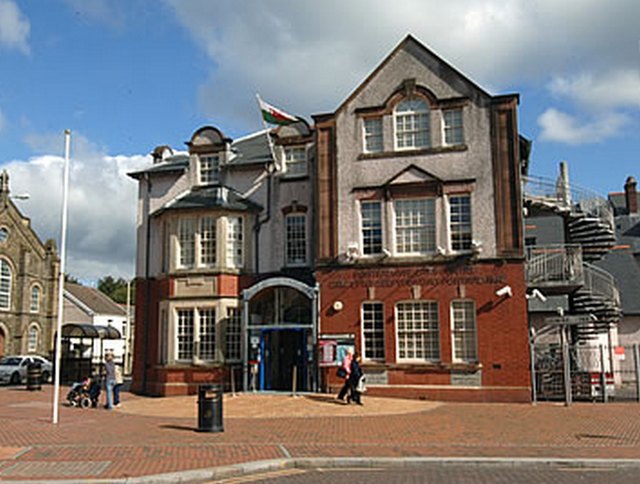
On a surprisingly balmy February evening, a warm welcome greeted us at Pontardawe Arts Centre, a busy and chatty crowd were waiting eagerly in the bar. Being a small, local theatre many people knew each other, familiar faces including that of Emily Hinshelwood exchanged greetings and created a lovely pre show atmosphere. Emily lives fairly local to Pontardawe and is fairly well known there, particularly for her poetry. She also runs the Script Café at the arts centre, a regular series of workshops with professional scriptwriters and theatre-makers to advise, critique and inspire new writing.
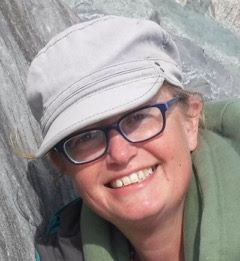
We headed into the theatre and were greeted at the door by the Theatre Manager, who along with her team has supported the production of Cracked. It is so important for theatres to support local artists, who in return bring innovative theatre to their programmes and audience members that follow their work. From experience I know that this takes additional funding and a lot of hard work, so well done to everyone who was involved in the production and touring of Cracked. The high quality of the resulting performance must have made it all worthwhile.
The audience were excited and talkative before the show; in front of them an impressive set, a solid scaffold-like structure with different levels and shapes within. The bright and clear programme helped to set the scene. The audience ranged from teenage to older age, a real mix of people. The theatre, the welcome and the programme delivered a safe space to those who had taken the chance tonight on a new drama that promised to be ‘a moving, thought-provoking play about vulnerability, mental well-being and the universal need for love’.
The cast of 5 were supported by a versatile set, clever lighting and a soundscape with non-intrusive familiar sounds that helped to affirm the perception of place, whether in school or by the sea. The 6th member of the cast was a puppet of Mick, the main character, appearing as a young boy and whose integral part gave us the background to the story.
Whilst Mick (Tom Mumford) was the central character, each of the other players were essential to the story and all of their performances gave way to that moment where you let your imagination go and begin to believe that they really are those characters before you. Most convincing in this was Dick Bradnum in his portrayal of Mr Jackson, that brash, self-important and misguided teacher who just gets it wrong. In this moralistic tale, he also plays the voice of Dad, but never appears.
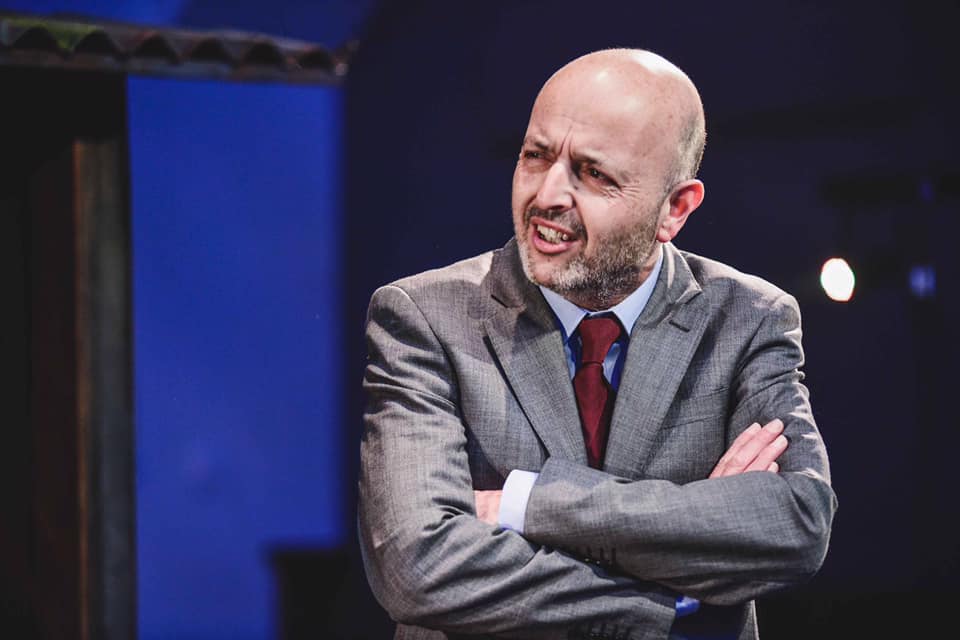
Joe Wiltshire Smith plays Stewart Skinner, the unruly pupil who’s a bit of a joker, with a hidden backstory whose offensive and defensive manner gets him into trouble. Shelby (Frances Keyton) provides the balance and understanding in her character that blends concern with clumsiness in action and words. Both build relationships with Mick that take him on a difficult path, but in the end show a much needed glimmer of hope.
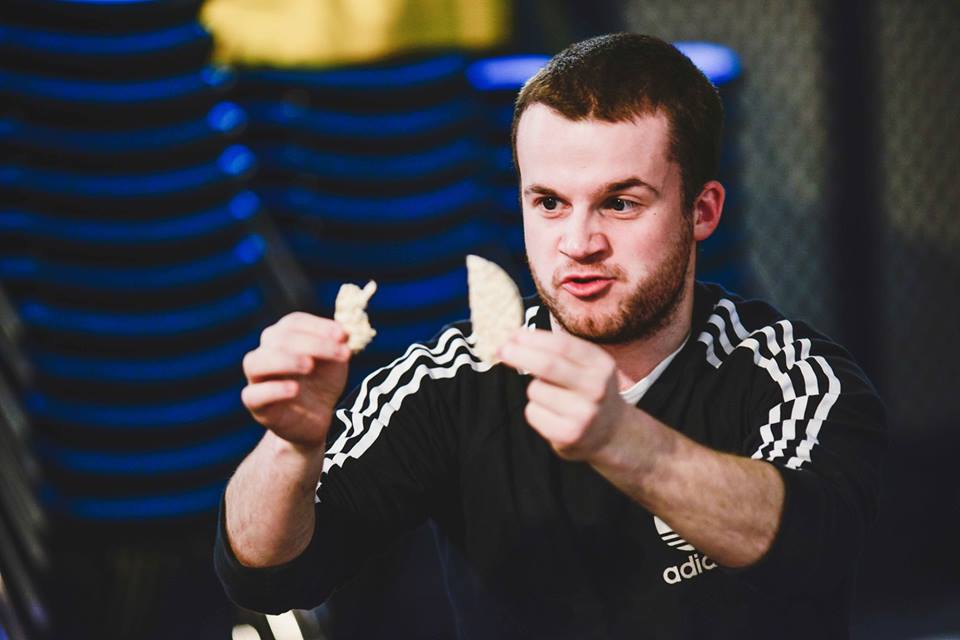
Cavelle, played by Catriona James, is the character that only Mick can see, that imaginary friend, conscience and other self that we all converse with, portrayed in the form of a crow. At one moment proud, loving and supportive, at another undermining and mean, she accompanies Mick throughout the play as he makes decisions on which path to take. Along with the puppet of the young Mick, she tells the story of his past, his loss and his insecurity that leads him to the present and into the future.
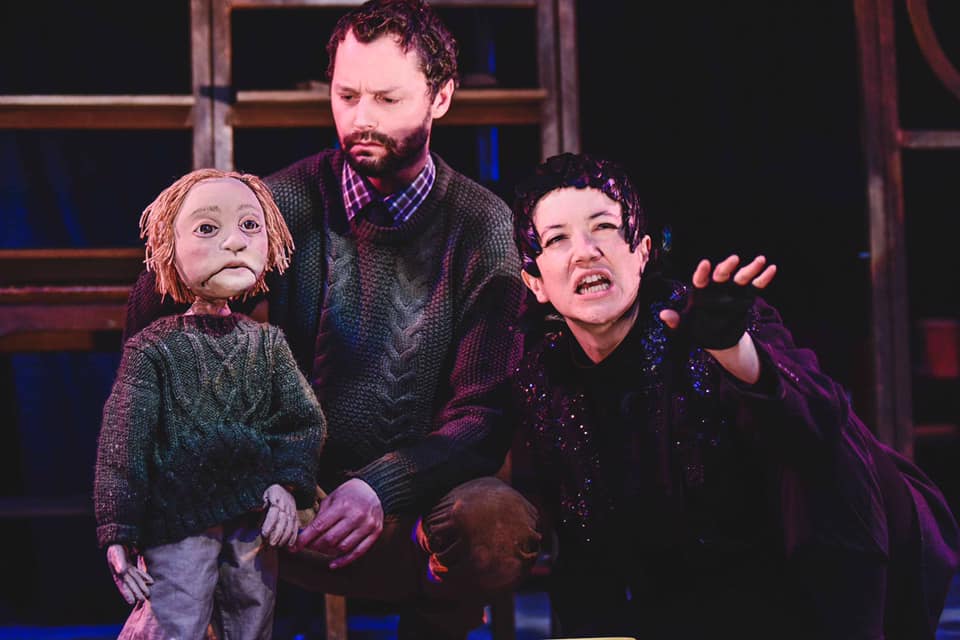
Location is important in this play, set in the South West and near to the sea. The coastline here is a geologist’s dream with fossils, layered rocks and a history that includes dinosaur’s footprints and volcanic eruptions. Mick teaches Geology and it seems that the writer has a strong interest in this subject with references to tectonic plates, trilobites and the historical shifts in land and sea that have shaped Wales’ coastline.
The show begins with a scene of distress, with Mick about to jump of a cliff, giving us a glimpse of the possible future that beholds him and then melting into the start of a school day and the beginning of this episode of his life that provides the thought-provoking and often difficult scenes that emerge.
The play has a good pace, moving swiftly through scenes and circumstances that confront Mick as both the teacher and boy; a story and a sense of impending doom gradually emerges as more information is revealed. The performance was engaging throughout; some scene changes were a bit rough and the pace lessened towards the end, but this portrayal of the human condition was delivered with strength and determination.
There is lots of humour, relevant and with underlying pathos. The play makes many reference to issues that young people experience such as home schooling, difficult circumstances, illness, mental health, death and loss. It recognises the ways that society, schools in particular, deal with this and how what is intended to protect can often cause harm. It shows human kindness and human frailty in a way that is often difficult for the audience to watch, but gives voice to subjects that need to be addressed.
In the programme the writer makes it clear that it doesn’t aim to come up with answers, but invites discussion. The workshops and daytime performances that have gone alongside the evening shows of Cracked are very important, giving the opportunity for teachers and secondary pupils to attend and take part. Yes, there’s some swearing, but it’s really inoffensive and I would recommend this play to be seen, read and studied. Cracked deserves a longer life than this short tour.
For me, I am part of that older audience that appreciated the play for its honesty and bravery. For the actors who all played their parts so well and for the excellent writing from Emily Hinshelwood, who loves words and is brave enough to share hers with us.
If you haven’t been there before, Pontardawe Arts Centre is a gem of a theatre, just 10 minutes’ drive from junction 45 of the M4. Check out their programme and make a date for yourself – there are also some nice restaurants in and around the town for pre or post show dinner. Check out their events at https://npttheatres.co.uk/pontardawe/whats-on/ .
